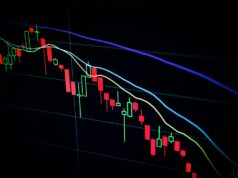In the bustling realm of financial markets, where the tides of fortune ebb and flow with each tick of the clock, traders find themselves navigating a landscape both promising and perilous. The major exchanges stand as towering giants, offering a stage for those willing to engage in the intricate dance of buying and selling. It is here that the best strategies can be forged, where insights gleaned from experience illuminate the path forward.
The world of trading is not merely a game of chance; it is an arena where techniques are honed and approaches refined through diligent practice and unwavering commitment. Every successful trader knows that mastery lies in understanding the nuances of market behavior, and thus, they seek out advice that resonates with their own experiences. The suggestions they gather become tools in their arsenal, enabling them to navigate the complexities of leading markets with confidence.
Investment strategies crafted for major exchanges require more than just a superficial grasp of numbers; they demand an intimate knowledge of market dynamics and human psychology. Each decision–whether driven by a thirst for profit or a desire to mitigate risk–must be rooted in a solid foundation of best practices. As we delve into the myriad facets of trading, we will explore hacks that can provide an edge, uncovering the wisdom necessary to thrive amidst volatility.
As we embark on this journey through the labyrinthine corridors of trading techniques, let us keep our minds open and our intentions clear. The insights shared within these pages are not mere theories but distilled lessons learned from countless hours spent grappling with charts and indicators. Together, we will uncover a tapestry woven from experience, highlighting strategies that resonate with clarity and purpose in the ever-evolving world of major exchanges.
Trading Strategies for Major Exchanges
In the world of trading, where the winds of fortune can shift as quickly as a summer storm, it is essential to embrace strategies that stand the test of time. Major exchanges serve as the bustling marketplaces where traders gather, each seeking to navigate the complex waters of supply and demand. The best practices within these exchanges revolve around understanding market rhythms and employing techniques that resonate with both intuition and analysis. Suggestions from seasoned traders often emphasize the importance of patience–an invaluable trait in a landscape where haste can lead to missteps.
Approaches to trading on leading markets require an understanding of the underlying factors that drive price movements. It is not merely about reacting to trends but rather about cultivating insights that come from diligent observation and experience. Successful traders often recommend developing a solid foundation through technical analysis, which involves studying price charts and identifying patterns that may indicate future movements. This method provides a framework upon which traders can build their strategies, allowing them to make informed decisions amidst the chaos of market fluctuations.
The essence of trading lies in its dynamic nature; thus, adaptability becomes paramount. Those who thrive in major exchanges understand that rigid strategies may falter when faced with unexpected shifts in market sentiment. Incorporating flexible techniques enables traders to pivot quickly, capitalizing on emerging opportunities while safeguarding against potential losses. This adaptability is often supported by robust risk management practices–an essential component that ensures one does not gamble away what they cannot afford to lose.
Moreover, the trading landscape is enriched by the sharing of knowledge among peers. Recommendations from fellow traders can illuminate paths previously obscured by uncertainty. Engaging with communities dedicated to discussing trading hacks often reveals innovative approaches that challenge conventional wisdom. Such exchanges not only enhance one’s understanding but also foster a sense of camaraderie among those who share a passion for navigating the intricate dance of markets.
Ultimately, success on major exchanges is not merely a matter of luck but rather a harmonious blend of strategy, insight, and community engagement. By embracing these trading strategies and remaining open to new ideas, individuals can cultivate a more profound connection with the markets they traverse. In this ever-evolving arena, where every decision echoes through the corridors of time, it is the thoughtful trader who finds their way home through the labyrinthine paths of opportunity.
Essential Tips for Successful Trading
In the vast expanse of financial landscapes, where exchanges pulse with the rhythm of human ambition and anxiety, successful trading emerges as both an art and a science. The markets, teeming with opportunities, demand not just knowledge but a certain level of emotional intelligence and discipline. Approaches to trading can vary widely; yet, the essence remains in understanding market dynamics and cultivating patience. Each investment decision should be guided by careful analysis, allowing traders to navigate through volatility with steady hands and clear minds.
Best practices in trading often hinge on the art of strategy development. While some traders might be drawn to aggressive techniques that promise quick gains, others may find solace in more conservative approaches that prioritize long-term growth. It is essential to build a personalized strategy that aligns with one’s risk tolerance and financial goals. Recommendations from seasoned investors often echo the sentiment that diversification is crucial; it acts as a buffer against unforeseen market fluctuations, spreading risk across various assets while enhancing potential returns.
The realm of major exchanges offers a plethora of investment strategies, each with its unique set of advantages and challenges. In this complex dance between opportunity and risk, utilizing analytical tools can provide invaluable insights into market trends and price movements. Those who invest time in research and employ data-driven decisions often discover hidden gems within the chaos of trading. Furthermore, embracing the use of technology–be it through algorithms or automated trading systems–can serve as a powerful ally in executing well-timed trades.
Finally, as one ventures into leading markets, it becomes evident that continuous learning is paramount. Trading techniques evolve rapidly, influenced by global events and technological advancements. Engaging with communities of traders can foster an environment ripe for sharing advice and hacks that enhance one’s trading acumen. The journey through these bustling exchanges may be fraught with challenges, but armed with knowledge and determination, traders can carve out their own paths toward success in this dynamic world of finance.
Common Mistakes to Avoid in Trading on Major Exchanges
In the vast and often tumultuous sea of trading, many investors embark on their journeys with the fervor of sailors setting out to conquer uncharted waters. However, as they navigate through major exchanges, common mistakes can lead them astray. Among these pitfalls is the tendency to overlook the significance of research and preparation. Traders often dive headfirst into markets without fully understanding the underlying assets or the dynamics at play, which can prove disastrous. It is crucial to adopt a strategy that emphasizes thorough analysis and informed decision-making, grounding one’s approach in the realities of the market.
Investment strategies should not only be reactive but also proactive. Successful traders on leading exchanges understand the importance of having a clear plan that encompasses both short-term gains and long-term growth. This dual perspective allows for flexibility while maintaining a steady course. Recommendations for developing such strategies include setting realistic goals and determining acceptable levels of risk. The art of investing lies in balancing ambition with caution, ensuring that each move aligns with one’s overarching objectives.
Trading techniques vary significantly across different markets, yet some fundamental practices remain universally applicable. It is essential to cultivate an awareness of market trends and sentiments, as these elements shape the very fabric of trading behavior. Insights gleaned from technical analysis can provide valuable guidance, but they must be complemented by a keen understanding of market psychology. Traders who master this interplay between data and intuition often find themselves better equipped to make sound decisions.
In exploring market trading approaches, it becomes evident that consistency is paramount. Developing best practices involves creating routines that reinforce discipline and emotional stability. For instance, setting up automated alerts or utilizing software tools can help traders stay informed without becoming overwhelmed by constant fluctuations. Such hacks not only enhance efficiency but also allow room for reflection, fostering an environment conducive to strategic thinking.
Moreover, one must remain wary of overtrading–an all-too-common mistake among eager investors. The allure of quick profits can cloud judgment, leading to impulsive actions devoid of careful consideration. Establishing clear parameters for entering and exiting trades serves as a safeguard against this tendency. By adhering to predetermined criteria, traders can maintain focus and resist the temptation to chase fleeting opportunities that may ultimately yield disappointment.
Ultimately, embracing a spirit of continuous learning is vital in the ever-evolving landscape of major exchanges. Markets shift, technologies advance, and new strategies emerge; staying attuned to these changes ensures longevity in one’s trading career. By seeking advice from seasoned professionals and engaging with communities dedicated to sharing knowledge, traders can refine their approaches and enhance their effectiveness in navigating the complexities of investment landscapes. As they journey forth, let them carry with them the lessons learned–not merely as rules carved in stone but as guiding stars illuminating their path toward success.
Conclusion: Navigating the Complex Waters of Trading
In the intricate dance of trading, where each move can be both a step forward and a potential misstep, the importance of well-informed strategies cannot be overstated. Experienced traders know that the markets are not merely numbers on a screen; they are living entities that pulse with the collective decisions of countless participants. With each tick, there lies an opportunity wrapped in uncertainty, and it is through careful analysis and seasoned advice that one may navigate these waters with confidence.
The landscape of major exchanges is vast, filled with both challenges and rewards. The techniques and approaches discussed throughout this article serve as a compass for those willing to delve deeper into their trading practices. By embracing best practices, and by remaining open to insights gained from both successes and failures, traders can craft investment strategies that resonate with their unique goals and risk appetites.
Here are some key takeaways:
- Embrace Diverse Approaches: Different markets demand different strategies; adapt to the nuances of each.
- Utilize Advanced Techniques: Leverage analytics, algorithmic trading, and market sentiment analysis to inform your decisions.
- Stay Informed: Continuous learning is crucial; follow market trends and stay updated on news that could impact valuations.
- Risk Management is Essential: Always have a plan for protecting your investments, regardless of market conditions.
- Network and Share Insights: Engage with fellow traders; collective knowledge can illuminate paths previously unseen.
The journey through the world of trading is not merely about profit; it is about understanding the market’s rhythm and learning to dance with it. As you apply these suggestions and refine your techniques on leading exchanges, remember that patience and perseverance are your greatest allies. With every trade made, embrace the lessons learned, for they will guide you toward more informed decisions in the future.














